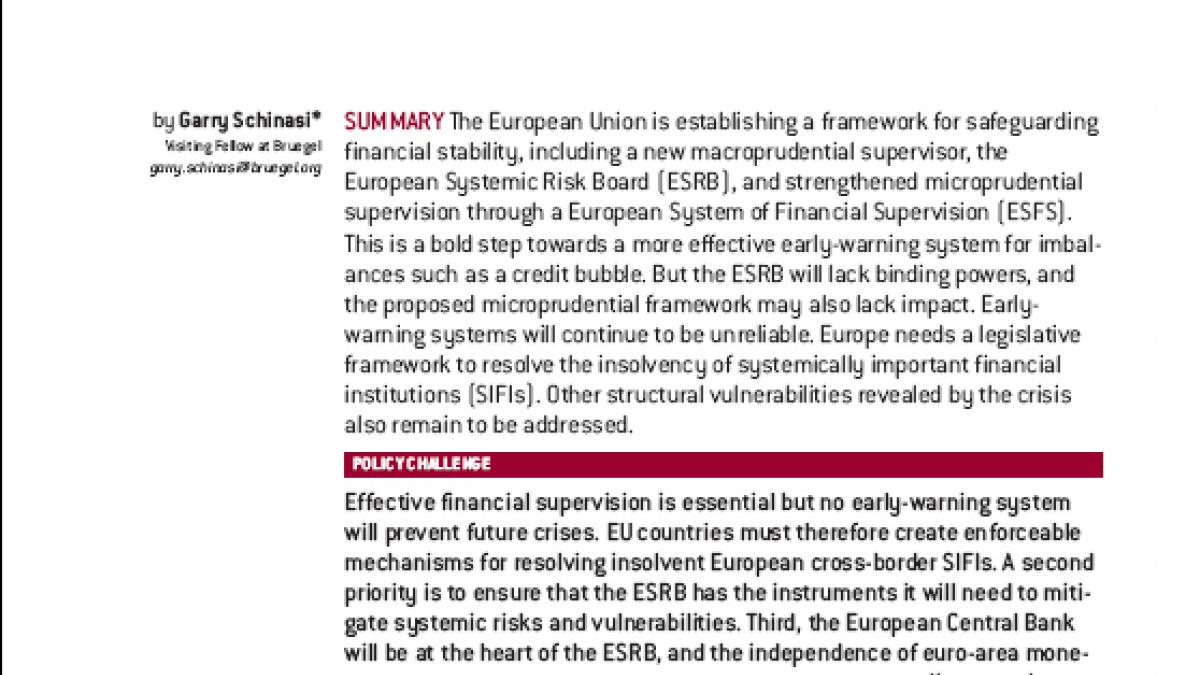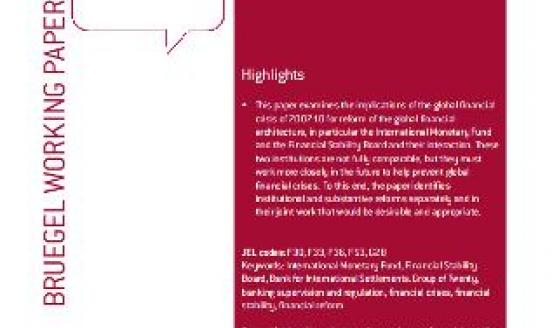Garry J. Schinasi joined Bruegel in October 2009 as a Visiting Fellow. He is presently on sabbatical from the International Monetary Fund, where he has worked since 1990, focusing on global finance and financial stability issues for the past 14 years. For most of this time (1994-2003) he co-managed the IMFs surveillance of international capital markets, including the IMFs flagship publication International Capital Markets: Developments, Prospects, and Key Policy Issues (1994-2001) and later the Global Financial Stability Report. After taking a one-year sabbatical to write a book on financial stability, Garry returned to the IMFs Finance Department where he managed the development of the Departments framework for assessing financial risk in the Fund emphasizing credit risk.
While on sabbatical at the IMF, Garry is working as an independent researcher and advisor on global and European financial stability issues. He has published articles in The Review of Economic Studies, Journal of Economic Theory, Journal of International Money and Finance, and other academic and policy journals. His book titled, Safeguarding Financial Stability: Theory and Practice, was published by the IMF in January 2006.
He received his PhD in economics from Columbia University in 1979 and for the next decade held staff positions at the Board of Governors of the U.S. Federal Reserve System before joining the IMF.
Garry's research interests include: safeguarding global financial stability issues; European financial crisis management; international financial architecture and global governance; international monetary and macroeconomic policy; and applied economic theory




